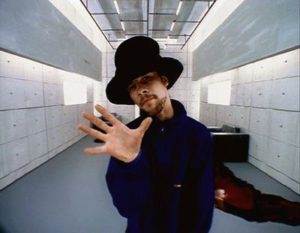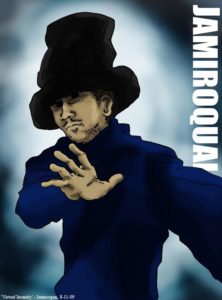
William Faulkner Banquet Speech
William Faulkner’s speech at the Nobel Banquet at the City Hall in Stockholm, December 10, 1950 *
Ladies and gentlemen,
I feel that this award was not made to me as a man, but to my work – a life’s work in the agony and sweat of the human spirit, not for glory and least of all for profit, but to create out of the materials of the human spirit something which did not exist before. So this award is only mine in trust. It will not be difficult to find a dedication for the money part of it commensurate with the purpose and significance of its origin. But I would like to do the same with the acclaim too, by using this moment as a pinnacle from which I might be listened to by the young men and women already dedicated to the same anguish and travail, among whom is already that one who will some day stand here where I am standing.
Our tragedy today is a general and universal physical fear so long sustained by now that we can even bear it. There are no longer problems of the spirit. There is only the question: When will I be blown up? Because of this, the young man or woman writing today has forgotten the problems of the human heart in conflict with itself which alone can make good writing because only that is worth writing about, worth the agony and the sweat.
He must learn them again. He must teach himself that the basest of all things is to be afraid; and, teaching himself that, forget it forever, leaving no room in his workshop for anything but the old verities and truths of the heart, the old universal truths lacking which any story is ephemeral and doomed – love and honor and pity and pride and compassion and sacrifice. Until he does so, he labors under a curse.
He writes not of love but of lust, of defeats in which nobody loses anything of value, of victories without hope and, worst of all, without pity or compassion. His griefs grieve on no universal bones, leaving no scars. He writes not of the heart but of the glands.
Until he relearns these things, he will write as though he stood among and watched the end of man. I decline to accept the end of man. It is easy enough to say that man is immortal simply because he will endure: that when the last dingdong of doom has clanged and faded from the last worthless rock hanging tideless in the last red and dying evening, that even then there will still be one more sound: that of his puny inexhaustible voice, still talking.
I refuse to accept this. I believe that man will not merely endure: he will prevail. He is immortal, not because he alone among creatures has an inexhaustible voice, but because he has a soul, a spirit capable of compassion and sacrifice and endurance.
The poet’s, the writer’s, duty is to write about these things. It is his privilege to help man endure by lifting his heart, by reminding him of the courage and honor and hope and pride and compassion and pity and sacrifice which have been the glory of his past.
The poet’s voice need not merely be the record of man, it can be one of the props, the pillars to help him endure and prevail.
윌리엄 포크너 ‘노벨문학상 수상연설’
오늘날 우리는 일반적이고 보편적이며 물리적인 두려움이
이제까지 너무 오래되어 심지어는 이를 견딜 수도 있다는
비극에 놓여 있습니다.
영혼에 대해서는 더는 아무도 문제를 제기하지 않습니다.
질문은 오직 이것뿐입니다.
“나는 언제쯤 성공할까?”
이런 이유로 오늘날 글을 쓰고자 하는 젊은이들은
갈등에 빠진 인간의 마음이라는 문제를 잊고 있습니다.
이 주제야말로 괴로워하며 땀을 쏟아부어 글로 쓸 만한
가치가 있는 유일한 것인데도 말이지요.
글을 쓰고자 한다면 이 점을 다시 배워야 합니다.
무엇보다도 가장 기본적인 것을 두려워해야 한다는 점을
깨우쳐야 합니다. 또한, 수명이 짧고 불운한
이야기에서는 찾아볼 수 없는, 예전의 보편적인 진리,
마음이라는 오래된 진실, 사랑과 명예, 동정심과
자부심, 연민과 희생 말고는 그 무엇도 작업실에
두지 않으면서, 이 점을 영원히 잊지 않도록
자신을 깨우쳐야 합니다.
이렇게 하지 않는 작가가 하는 일은 저주에 걸려 있습니다.
이런 작가는 사랑이 아닌 욕정으로, 가치를 잃을 것도 없는
전투에서의 패배로, 희망을 품을 수 없는 승리로
글을 쓰는 것입니다.
그중에서도 최악은 동정이나 연민 없이 글을 쓰는 것이지요.
그의 슬픔은 어떠한 보편적 기반도 없으며, 상처 하나 남기지 않습니다.
그는 인간의 마음이 아니라 분비 기관들에 대해 쓸 뿐입니다.
이런 것들을 다시 배우지 않는다면 인간의 종말
한가운데 서서 지켜보고 있다는 듯 글을 쓸 것입니다.
저는 인간의 종말이라는 생각을 받아들이지 않을 겁니다.
인간은 인내하는 존재이므로 불멸하는 존재가 될 수 있다고 말할 겁니다.
종말을 알리는 최후의 종이 울리고 마지막으로 붉게 물든 빈사의 저녁,
최후의 쓸모없는 바위 하나가 썰물이 빠져나가는 바다 위에 놓여 있을 때,
그때도 여전히 소리 하나는 들려올 것입니다.
그것은 바로 작고 약하지만, 절대 굴하지 않는 작가의 목소리입니다.
그는 여전히 말하고 있을 겁니다. 저는 여기서 그치지 않겠습니다.
저는 인간이 그저 인내하는 존재가 아니라고 믿습니다.
인간은 승리할 것입니다. 인간이 불멸자인 이유는 피조물들 사이에서
홀로 지칠 줄 모르는 목소리를 내기 때문이 아니라
연민과 희생, 그리고 인내를 포용하는 영혼을 지녔기 때문입니다.
시인과 작가의 의무는 바로 이런 영혼에 대해 쓰는 것입니다.
인간의 마음을 고양하고 과거를 영광스럽게 했던 용기와 명예,
희망과 자긍과 연민과 동정과 희생을 드높일 수 있도록
돕는 것이 이들의 특권입니다.
시인의 목소리는 한낱 인간만을 기록하는 게 아닙니다.
시인의 목소리는 인간을 인내하게 하고,
승리하도록 도와주는 하나의 버팀목, 기둥이 될 수 있습니다.
– 1950년 노벨문학상 수상 연설에서 –
좋은글 감사합니다
http://www.loaloachristiannetwork.com/
<Photo from app>
















































